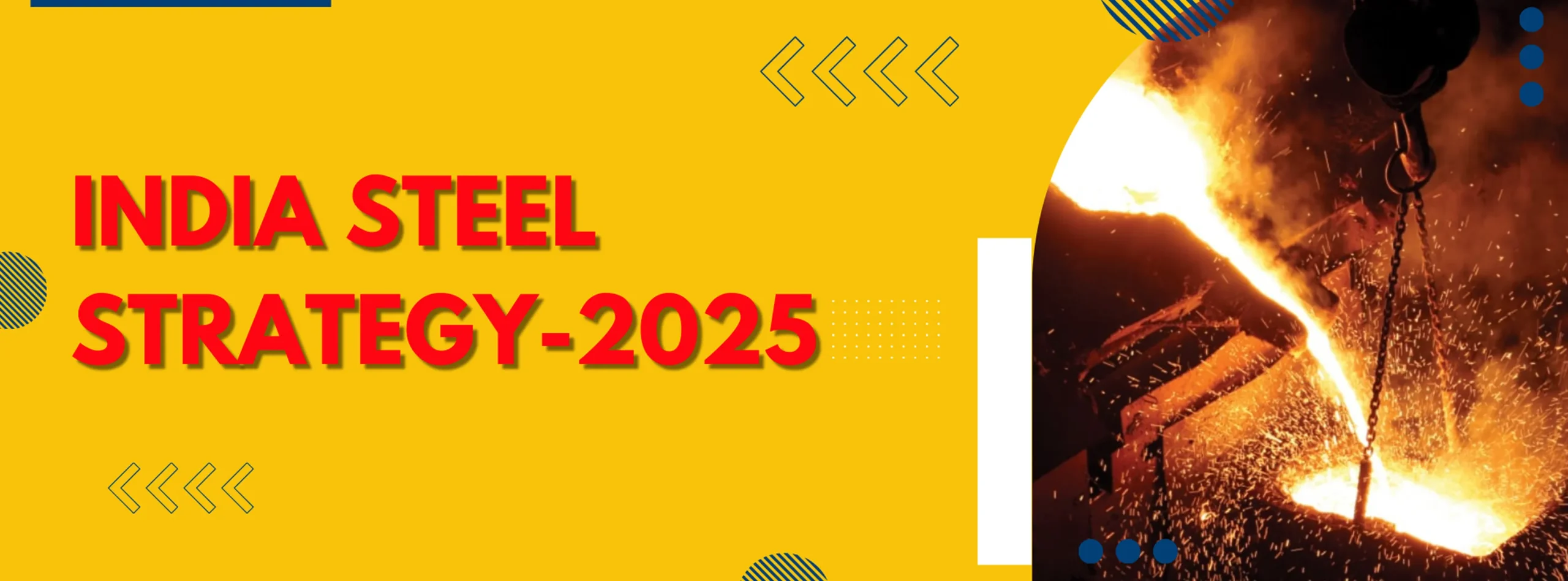India amended its domestic steel procurement policy from April 1, 2025 under the Domestically Manufactured Iron and Steel Products (DMI & SP) policy to increase the domestic production and primarily to minimize import dependency & giving priority to other nations. There are significant reasons as stated below
Domestic Preference Mandate:
Indian government departments, ministries, and industries are going to make it mandatory for all the iron and steel items produced or produced in India for tenders worth INR 5 lakh. In order to increase the domestic steel production and also decrease the imports from other prominent countries such as China & etc…
Limitation on Global Tenders:
The updated policy will mainly give priority to domestic producers to provide contracts worth more than INR 200 crore approx, signalling a complete shift in the procurement approach. This will be a long-standing campaign to increase the domestic manufacturing and to cut access of foreign competitors to government contracting. By focusing on local suppliers, government can create more job opportunities that boost our economy, and make domestic steel industry more profitable.
Domestic Value Addition Requirement:
To improve the local steel sector, all of the government projects that requires vulnerable raw materials including furnaces and rolling mills will now subject to a 50% domestic value addition requirement as the lowest. This step is supposed to lead local producers to create new products and the existing ones to remain competitive with the new competitors. Besides local value addition, the government seeks to promote and support local staff capacity building, local industry growth, competitiveness, and technology development in the steel sector.
Reciprocal Trade Measures:
To significantly boost the local steel sector, all government projects that call for vulnerable raw materials such as furnaces and rolling mills will from now on be subject to a 50% domestic value addition requirement as the lowest. This step is supposed to lead local producers to create new products and the existing ones to remain competitive with the new competitors. Besides local value addition, the government seeks to promote and support local staff capacitybuilding, local industry growth, competitiveness, and technology development in the steel sector.
Compliance and Oversight:
To be fully compliant with the new policy and be sure of the continuity of compliance, the present proposal says that movable committee will be created, the main responsibility of which is to centrally monitor the implementation of the policy of procurement. This committee is of course what is needed more than ever the most for it to be that in practice, only that will be that basically control it procuring and which will be guaranteed to be highly transparent also. A major aspect is that, together with the elaborated specifications, the procurement process needs to include the qualification criteria reasonably in contracts, thus, the uncertainty in the tendering will not exist. As for the bidders, they are obliged to declare that they are the owners of the products and provide true data while participating in the contract award contest. Also, the certification of the local content is essential when domestic producers are making their bids.

In addition, the genuine authorization certificate from the domestic producers will only be the request for the individuals who are claiming to represent their interests in the local sector so as to avoid fraud and impersonation in the process of making their bids. These concerted and wide-ranging efforts concentrated in this brief description are aimed at maximizing India’s steel self-reliance while minimizing import dependence and at the same time boosting local production in the industry while still maintaining the highest quality and competitiveness standards in the industry generally.
